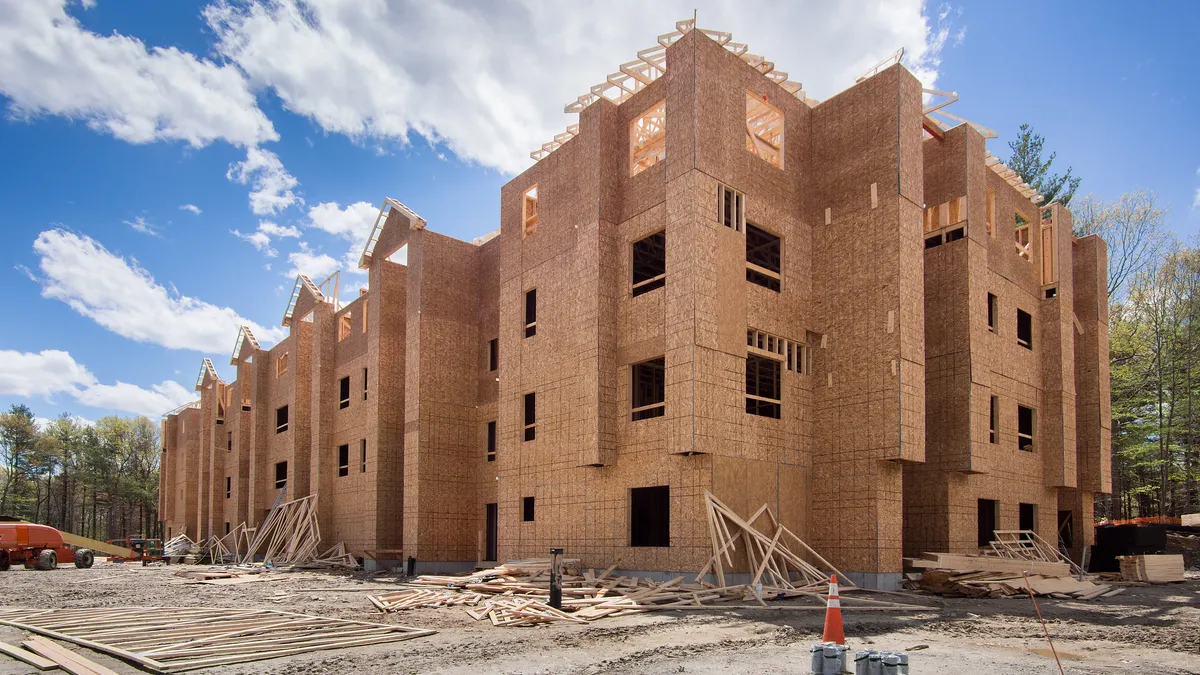Dive Brief:
- Commercial real estate developers and project managers across the country are overwhelmingly concerned about the impact of inflation on new deliveries and project budgets in 2023, according to a recent survey commissioned by Northspyre, a Brooklyn, New York-based real estate development software firm.
- But in a recent sign of optimism, October’s consumer price index raised hopes that inflation has peaked.
- Along with inflation, real estate project managers identified inadequate productivity and uncertain project outcomes as the two main drivers of their anxiety, according to the report.
Dive Insight:
Despite recent positive inflation data, lingering economic uncertainty in the U.S. has prompted grim predictions from market analysts, according to the report.
“If you’re in real estate, you are in a recession. It’s just a matter of time when it goes to financing, refinancing and restructuring. It’s going to show up,” said Rajeev Dhawan, director of Georgia State University’s Economic Forecasting Center, in the report. “The cost of doing business is going to be much higher.”
Around 60% of project managers anticipate inflation to have a “moderate to major” impact on their business, according to the report. About 68% of interviewees believe mounting inflationary pressure will require them to make more strategic purchasing decisions, while 52% of all survey respondents plan to become more diligent in selecting vendors and procuring building materials.
Yet project managers peg time-consuming administrative chores as their biggest challenge, according to the report. About two-thirds of the survey’s respondents, or 67%, named “too much time spent on administrative tasks” as their No. 1 issue. Researchers discovered that project managers spend around 38% of their workday completing manual data entry.
In addition, about 62% of the respondents consider “keeping projects on budget and on schedule” their second-biggest pain point.
Survey participants indicated that dealing with vendors who follow low bids with a series of expensive change orders and inaccurate original budgets are major contributors to this issue.
For example, 46% of project managers strongly agree that “certain contractors issue more change order than others,” while 61% agree that “unforeseen conditions at the jobsite” are the sources of those change orders.











